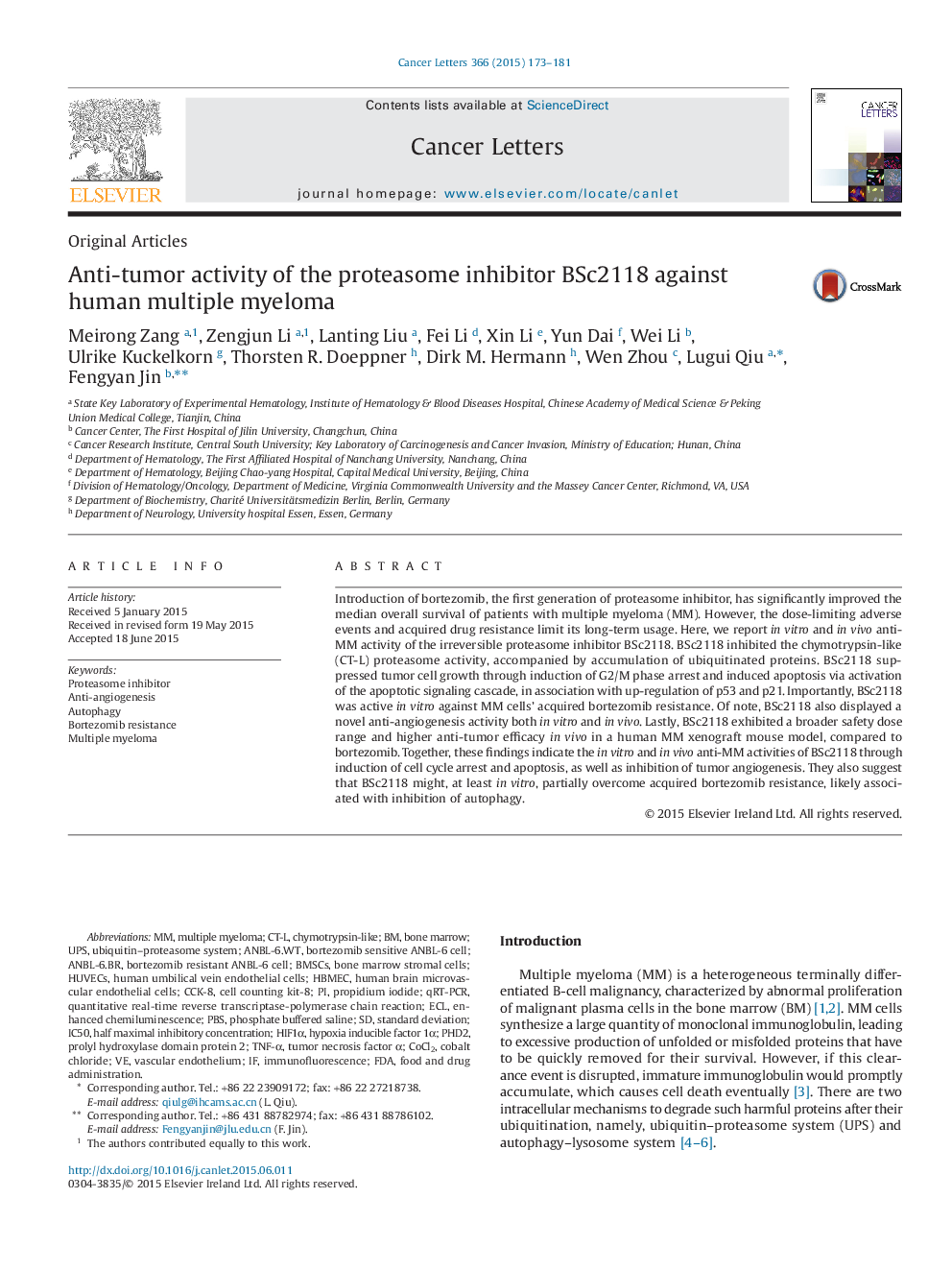| Article ID | Journal | Published Year | Pages | File Type |
|---|---|---|---|---|
| 10899455 | Cancer Letters | 2015 | 9 Pages |
Abstract
Introduction of bortezomib, the first generation of proteasome inhibitor, has significantly improved the median overall survival of patients with multiple myeloma (MM). However, the dose-limiting adverse events and acquired drug resistance limit its long-term usage. Here, we report in vitro and in vivo anti-MM activity of the irreversible proteasome inhibitor BSc2118. BSc2118 inhibited the chymotrypsin-like (CT-L) proteasome activity, accompanied by accumulation of ubiquitinated proteins. BSc2118 suppressed tumor cell growth through induction of G2/M phase arrest and induced apoptosis via activation of the apoptotic signaling cascade, in association with up-regulation of p53 and p21. Importantly, BSc2118 was active in vitro against MM cells' acquired bortezomib resistance. Of note, BSc2118 also displayed a novel anti-angiogenesis activity both in vitro and in vivo. Lastly, BSc2118 exhibited a broader safety dose range and higher anti-tumor efficacy in vivo in a human MM xenograft mouse model, compared to bortezomib. Together, these findings indicate the in vitro and in vivo anti-MM activities of BSc2118 through induction of cell cycle arrest and apoptosis, as well as inhibition of tumor angiogenesis. They also suggest that BSc2118 might, at least in vitro, partially overcome acquired bortezomib resistance, likely associated with inhibition of autophagy.
Related Topics
Life Sciences
Biochemistry, Genetics and Molecular Biology
Cancer Research
Authors
Meirong Zang, Zengjun Li, Lanting Liu, Fei Li, Xin Li, Yun Dai, Wei Li, Ulrike Kuckelkorn, Thorsten R. Doeppner, Dirk M. Hermann, Wen Zhou, Lugui Qiu, Fengyan Jin,
